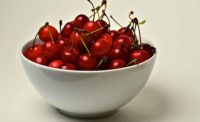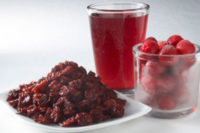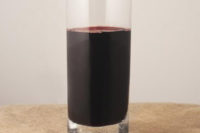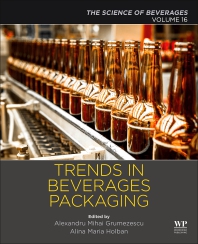Tart Cherries and Athletic Recovery
Growing numbers of athletes, active consumers look to foods, beverages for recovery

As athletes search for natural remedies to manage pain and inflammation, Montmorency tart cherries may provide that solution. Montmorency tart cherries offer athletes a sweet/tart taste packed with nutritional benefits, and can be easily added to beverages, gummies, protein bites or granola bars as a substantial foundation.
SOURCE: CHERRY MARKETING INSTITUTE

SOURCE: CHERRY MARKETING INSTITUTE


Recovery products are a fast growing market as manufacturers try to meet the growing demand of athletes pushing their physical boundaries.
During the past decade, there has been a 40% increase in marathon finishers, 66% increase in cycling race participation and a 714% increase in triathlon participation. These athletes and even more active consumers are looking for recovery benefits—backed by science—from foods and beverages.
As athletes search for natural remedies to manage pain and inflammation, Montmorency tart cherries may provide that solution. Montmorency tart cherries offer athletes a sweet/tart taste packed with nutritional benefits, and can be easily added to beverages, gummies, protein bites or granola bars as a substantial foundation.
Recently, a study published in Applied Physiology, Nutrition, and Metabolism found that Montmorency tart cherry juice helps accelerate recovery, maintain muscle function and reduce certain markers of exercise-induced inflammation. These findings resulted from an in-depth look at recovery readings amongst a group of cyclists, and can be applied to the larger athletic demographic looking to discover solutions to exercise-related soreness and stiffness.
The double-blind, placebo-controlled study, conducted by Glyn Howatson and Phillip G. Bell at Northumbria University in the UK, involved 16 well-trained male cyclists who were divided into two groups: one consuming Montmorency tart cherry juice and the other a placebo beverage including an equal amount of carbohydrates.
Those who received tart cherry juice mixed 30mL (approximately 1oz) of Montmorency tart cherry juice concentrate with 100mL of water and consumed the beverage twice a day for eight consecutive days. The participants also kept food diaries and were required to adhere to a low-polyphenolic diet that eliminated fruits, vegetables, tea, coffee, alcohol, chocolate and whole grains for the duration of the study.
After five days, all participants took part in a 109-minute, high-intensity cycling trial designed to replicate a road race. The two groups were monitored after the race by assessing the blood for specific markers of physiological stress that helps evaluate the body’s ability to recover.
When compared to the placebo group, the cyclists who received the Montmorency tart cherry concentrate maintained muscle function and experienced a reduction in certain inflammatory responses following the simulated cycling race. The appearance of tart cherry concentrate also seemed to help maintain exercise efficiency, reducing the amount of oxygen muscles need to do work.
Two additional studies found that marathon runners who drank Montmorency tart cherry juice before and after a long-distance race experienced a faster recovery of muscle strength and less muscle pain compared to those who drank a different beverage.1, 2 Montmorency tart cherries are available year-round in dried, frozen and juice forms – including juice concentrate, the form used in this study. Each serving of tart cherry concentrate consumed by the receiving group contained the equivalent of 90 to 110 Montmorency tart cherries, which are the most common varietal of tart cherries grown in North America.
For more information about how to incorporate tart cherries into new food and beverage formulations, or to learn more about the recovery benefits associated with Montmorency tart cherries, please visit www.ChooseCherries.com.
For more information:
Cherry Marketing Institute
12800 Escanaba Drive, Suite A
Dewitt, MI 48820
www.ChooseCherries.com
1
Howatson G, McHugh MP, Hill JA, Brouner J, Jewell AP, van Someren KA, Shave RE, Howatson SA. Influence of tart cherry juice on indices of recovery following marathon running. Scandinavian Journal of Medicine and Science in Sports. 2010;6:843-852.
2
Kuehl KS, Perrier ET, Elliot DL, Chestnutt JC. Efficacy of tart cherry juice in reducing muscle pain during running: a randomized controlled trial. Journal of the International Society of Sports Nutrition. 2010;7:17-22.
Looking for a reprint of this article?
From high-res PDFs to custom plaques, order your copy today!








